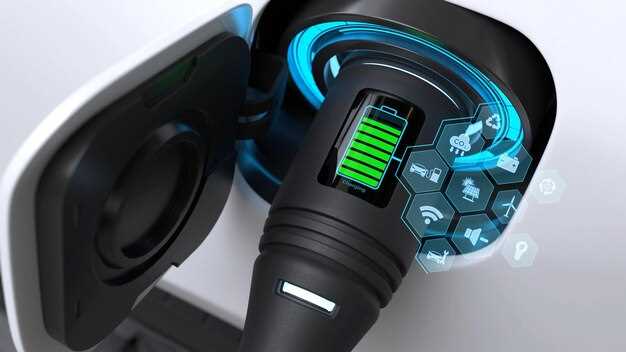The Most Fuel-Efficient Hybrid Cars Available Today

As environmental concerns and fuel prices continue to rise, the demand for fuel-efficient vehicles has skyrocketed. Among the best solutions are hybrid cars, which combine the power of gasoline engines with electric motors to optimize fuel consumption. This article explores the top fuel-efficient hybrid cars currently available in the market, providing you with essential insights into their features, performance, and eco-friendliness.
Hybrid technology has come a long way since its inception. Today’s models are designed not only to reduce carbon footprints but also to deliver impressive driving experiences. With advancements in battery technology and energy management systems, modern hybrids offer better acceleration and improved range compared to their predecessors. Consumers can now enjoy the benefits of environmentally friendly driving without sacrificing performance.
In this guide, we will outline some of the most efficient hybrids available today, highlighting their unique features and benefits. From compact sedans to spacious SUVs, these vehicles cater to a variety of needs while ensuring drivers stay ahead in fuel economy. Whether you’re a city dweller or a family on the go, you’ll find a hybrid car that aligns perfectly with your lifestyle.
Understanding the Benefits of Hybrid Technology
Hybrid technology combines a traditional internal combustion engine with an electric propulsion system. This integration offers several compelling advantages for environmentally conscious consumers and those looking to save on fuel costs.
Enhanced Fuel Efficiency: One of the primary benefits of hybrid vehicles is their superior fuel economy. By utilizing both a gasoline engine and an electric motor, hybrids can minimize fuel consumption, especially in stop-and-go driving conditions. This results in lower fuel expenses and a reduced carbon footprint.
Reduced Emissions: Hybrid cars produce fewer harmful emissions compared to conventional gasoline vehicles. By relying on electric power at low speeds or during acceleration, hybrids help decrease air pollution and contribute to cleaner urban environments.
Regenerative Braking: This technology captures energy typically lost during braking and redirects it to recharge the vehicle’s battery. As a result, hybrids can operate more efficiently and extend the range of electric-only driving.
Tax Incentives: In many regions, purchasing a hybrid vehicle may qualify buyers for tax rebates or incentives. These financial benefits can significantly offset the initial cost and promote environmentally friendly choices.
Quiet Operation: Hybrid cars generally operate more quietly than their traditional counterparts, particularly at lower speeds when they are using electric power. This quieter operation contributes to noise pollution reduction in urban areas.
Reliability and Technological Innovation: Many manufacturers invest heavily in hybrid technology, ensuring that these vehicles are equipped with modern, reliable systems. This innovation often extends to safety features and infotainment options, making hybrids an attractive choice for tech-savvy consumers.
In summary, hybrid technology offers significant benefits, including improved fuel efficiency, reduced emissions, and advanced features. These advantages make hybrids a smart choice for those seeking both economic savings and environmentally friendly alternatives.
Top Models with Exceptional Fuel Economy Ratings
When it comes to fuel-efficient hybrid cars, several models stand out for their impressive fuel economy ratings. These vehicles not only minimize your carbon footprint but also save you money at the pump. Below are some top contenders known for their exceptional fuel efficiency.
| Model | Fuel Economy (MPG) | Key Features |
|---|---|---|
| Toyota Prius | 58 city / 53 highway | Spacious interior, advanced safety features, and a strong reputation for reliability. |
| Honda Insight | 55 city / 49 highway | Sleek design, high-quality interior, and excellent driving dynamics. |
| Hyundai Ioniq Hybrid | 57 city / 59 highway | Affordable price, cutting-edge technology, and generous warranty coverage. |
| Kia Niro | 51 city / 46 highway | Versatile crossover design, ample cargo space, and user-friendly features. |
| Ford Escape Hybrid | 44 city / 37 highway | All-wheel drive option, spacious seating, and modern infotainment system. |
These models exemplify the combination of efficiency and practicality, making them ideal choices for eco-conscious drivers looking for reliable and economical transportation. Whether you prioritize performance, technology, or comfort, there’s a hybrid option that meets your needs. Choosing one of these top models will help you enjoy significant fuel savings while contributing to a more sustainable future.
Comparing Costs: Initial Investment vs. Long-Term Savings

When considering the purchase of a top fuel-efficient hybrid car, potential buyers often grapple with the balance between initial costs and long-term savings. The initial investment for hybrid vehicles typically includes a higher sticker price compared to their conventional counterparts, primarily due to advanced technology and components such as electric motors and batteries.
For instance, a typical hybrid can cost anywhere from $2,000 to $5,000 more than a standard gasoline vehicle. While this upfront cost might deter some buyers, it is crucial to evaluate the long-term savings that a hybrid can provide. Fuel efficiency is the primary factor contributing to these savings; many hybrids achieve over 50 miles per gallon, significantly reducing fuel expenses over time.
Furthermore, hybrid vehicles often qualify for federal and state tax incentives, which can offset the initial purchase price. Many regions offer rebates or tax credits for eco-friendly vehicles, further improving the economic appeal of hybrids. Owners can also benefit from lower maintenance costs, as hybrids tend to experience less wear and tear on engines and brakes due to their electric components.
Over a typical vehicle ownership period of five to ten years, the savings from reduced fuel consumption, tax benefits, and lower maintenance costs can result in substantial financial returns. Studies indicate that a hybrid owner may save thousands of dollars in fuel alone, making a once high initial investment worthwhile.
Ultimately, while the initial outlay for a hybrid car can be significant, evaluating the vehicle’s lifetime cost savings demonstrates a compelling financial rationale that may justify the higher upfront expense. Such a cost-benefit analysis is crucial for potential buyers seeking not only fuel efficiency but also long-term financial sustainability.
Real-World Driving Performance of Popular Hybrid Cars
When evaluating hybrid cars, it’s essential to look beyond fuel efficiency figures and consider real-world driving performance. This encompasses acceleration, handling, ride comfort, and overall driving experience. Below are some popular hybrid models and their performance aspects based on user experiences and expert reviews.
-
Toyota Prius
- Acceleration: 0-60 mph in approximately 9.8 seconds, delivering a balanced blend of power and efficiency.
- Handling: While not sports-oriented, it offers a stable and predictable drive, making it suitable for city driving.
- Ride Comfort: The suspension is tuned for comfort, smoothing out bumps in urban environments.
-
Honda Insight
- Acceleration: Achieves 0-60 mph in about 7.7 seconds, demonstrating a more spirited performance compared to competitors.
- Handling: Equipped with precise steering and agile handling, providing a more engaging driving experience.
- Ride Comfort: The interior is quiet, and the ride is generally comfortable with supportive seating.
-
Ford Escape Hybrid
- Acceleration: Delivers a 0-60 mph time of roughly 8.7 seconds, offering sufficient power for merging and highway speeds.
- Handling: The SUV body style results in a higher center of gravity, impacting cornering stability slightly; however, it remains manageable.
- Ride Comfort: Features a spacious cabin with an elevated driving position, providing good visibility and comfort on long trips.
-
Hyundai Sonata Hybrid
- Acceleration: Reaches 0-60 mph in around 8.2 seconds, showcasing a responsive performance feel.
- Handling: Offers a composed ride with competent handling around corners, making it a pleasure for daily commuting.
- Ride Comfort: Exceptional cabin insulation coupled with comfortable seating enhances long-distance driving.
-
Kia Niro
- Acceleration: Capable of 0-60 mph in about 8.9 seconds, providing adequate power for city and highway driving.
- Handling: Balanced handling with light steering, although it prioritizes comfort over sportiness.
- Ride Comfort: The spacious interior and supportive seats contribute to a pleasant driving experience in varied conditions.
Understanding the real-world performance of these hybrid cars can help buyers make informed decisions, ultimately matching their driving preferences with the right vehicle. These vehicles not only promise fuel efficiency but also deliver enjoyable driving characteristics suitable for various lifestyles.
State and Federal Incentives for Hybrid Car Buyers
Purchasing a hybrid vehicle not only contributes to environmental sustainability but can also bring significant financial benefits through various incentives. Both state and federal governments provide programs aimed at encouraging the adoption of fuel-efficient vehicles, including hybrids.
Federal tax credits are one of the most substantial incentives available for hybrid car buyers. As part of the federal government’s efforts to promote green technology, buyers may qualify for a tax credit ranging from $2,500 to $7,500, depending on the battery capacity of the vehicle. This credit directly reduces your tax liability, making a substantial impact on the overall cost of the vehicle.
In addition to federal incentives, many states offer their own programs to promote hybrid and electric vehicle adoption. These programs can vary widely from state to state but often include benefits such as:
- State tax credits: Some states offer additional tax credits that can further reduce the cost of purchasing a hybrid vehicle.
- Rebates: Direct cash rebates can also be provided, which offer immediate financial relief at the point of sale.
- Reduced registration fees: Certain states may lower the registration fees for hybrid vehicles to encourage eco-friendly purchases.
- HOV lane access: Some states allow hybrid vehicle owners to access high occupancy vehicle (HOV) lanes, even with a single occupant, which can save time on commutes.
Additionally, local incentives may be available, which can include reduced parking fees, incentives for charging station installations, and other programs specific to urban areas. It’s essential for potential buyers to research their specific state’s offerings as well as any local incentives from city or county governments.
Overall, the combination of federal and state incentives can significantly lessen the financial burden of purchasing a hybrid vehicle, making now an ideal time to consider making the switch to a more fuel-efficient option.
Maintaining Your Hybrid Car for Optimal Performance
Maintaining your hybrid car requires special attention to both its gasoline engine and electric components. Regular upkeep not only enhances performance but also extends the lifespan of your vehicle.
Start with routine oil changes, following manufacturer guidelines regarding intervals and recommended oil types. Synthetic oil is often the best choice for hybrids as it provides better protection at high temperatures and improves fuel efficiency.
Battery health is crucial for hybrid performance. Monitor the state of your hybrid battery often and schedule periodic inspections. It’s essential to keep the battery cleaned and free from corrosion to ensure efficient energy flow.
Brakes on hybrid vehicles tend to last longer due to regenerative braking systems. However, regular inspection of brake pads and rotors is important. Replace components as needed to ensure effective stopping power and maintain safety.
Tire maintenance should not be overlooked. Regularly check tire pressure, as under-inflated tires can lead to decreased fuel efficiency. Rotating tires every 5,000 to 7,500 miles helps in balancing wear and maximizing longevity.
Lastly, pay attention to software updates from the manufacturer. These updates can enhance your hybrid’s efficiency and deliver fixes for known issues, ensuring that your vehicle continues to perform optimally.

